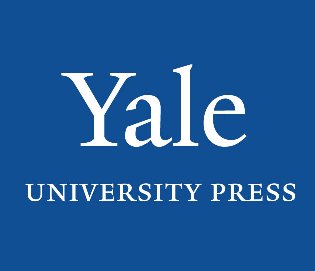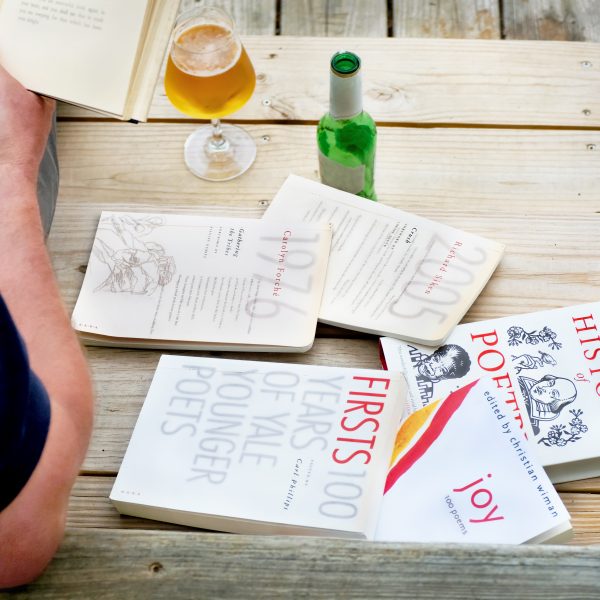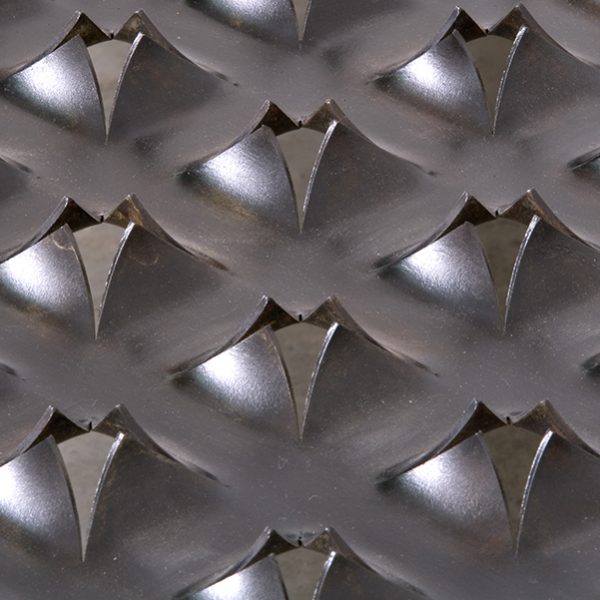Poets Fady Joudah and Katherine Larson at the Houston Public Library, January 12
 Prize Poets is a showcase for prominent, nationally acclaimed poets, presented annually, at the start of the year. For the inaugural event, two recent winners of the prestigious Yale Series of Younger Poets Prize, Fady Joudah and Katherine Larson, will be featured at 2 PM on Saturday, January 12, 2013 at the Houston Public Library Central Library. Prize Poets is organized by Public Poetry, an independent Texas non-profit organization, and presented in partnership with the City of Houston/Houston Public Library.
Prize Poets is a showcase for prominent, nationally acclaimed poets, presented annually, at the start of the year. For the inaugural event, two recent winners of the prestigious Yale Series of Younger Poets Prize, Fady Joudah and Katherine Larson, will be featured at 2 PM on Saturday, January 12, 2013 at the Houston Public Library Central Library. Prize Poets is organized by Public Poetry, an independent Texas non-profit organization, and presented in partnership with the City of Houston/Houston Public Library.
Fady Joudah, a Palestinian American, won The Yale Series of Younger Poets Prize in 2007 for The Earth in the Attic, selected by Louise Glück. In 2013, Copper Canyon Press will publish his second book, “Alight.” His translations of Mahmoud Darwish’s poetry, “The Butterfly’s Burden” and “If I Were Another”, received the 2008 TLS/Banipal Prize for Arabic translation from the UK, and the PEN USA for translation in 2010, respectively. Also from Yale University Press is his recent translation of Ghassan Zaqtan’s poetry, “Like a Straw Bird It Follows Me.” Joudah is also a practicing physician of internal medicine and has worked with Doctors Without Borders.
Katheirne Larson won The Yale Series of Younger Poets Prize in 2011 for Radial Symmetry, selected by Louise Glück. Her poetry was highlighted on PBS’s Newshour Poetry Series. Her poems appear in Prentice Hall’s anthology Literature: An Introduction to Reading and Writing, and journals including “AGNI,” “Boulevard,” the “Kenyon Review,” the “Massachusetts Review,” “Orion,” “Poetry,” “Poetry Northwest,” and others. She is the recipient of a Kate Tufts Discovery Award, the Levis Reading Prize, a Ruth Lilly Fellowship, and The Union League Civic and Arts Foundation Poetry Prize. Larson has worked for the last decade as a molecular biologist and field ecologist. She lives in Arizona with her husband and daughter.
Both Larson and Joudah pursued science related careers, which variously impacted their poetry. “Science and poetry are fueled by curiosity, and both depend on investigation and experimentation. But they also depend on imagination,” says Larson. “While living at a field station next to the Sea of Cortez…. I’d write at night in the wet lab when the station was deserted, baby hammerheads and pygmy octopuses staring out from specimen jars, the sea outside sonorous and insistent.”
For Joudah “…the realm of modern language… is highly infused with the scientific.” He adds: “If it is cliche or outdated to say ‘poetry comes to one, one does not come to poetry,’ then I think neuroscience might soon prove this cliche to be true, so long as poetry is words in visible and invisible rhythms. Or I can say my father spoke a lot to me about poetry and grammar when I was a kid.”



